
Recorded in 1975 at the Swiss Willisau Jazz Festival, Joe McPhee's trio with John Synder on synth and Makaya Ntshoko on drums, and McPhee on tenor and sopranox sax, was Hat Hut's 2nd release and has been out of print since; Corbett vs. Dempsey asked McPhee what unavailable album he'd like to see in print, and this suberb album was his first choice.
Out of Stock
Quantity in Basket: None
Log In to use our Wish List
Shipping Weight: 3.00 units
Sample The Album:
Joe McPhee-tenor saxophone, soprano saxophone
John Snyder-synthesizer, voice
Makaya Ntshoko-drums
Click an artist name above to see in-stock items for that artist.
UPC: B075L8X229
Label: Corbett vs. Dempsey
Catalog ID: CD0040
Squidco Product Code: 25135
Format: CD
Condition: New
Released: 2017
Country: USA
Packaging: Cardboard Gatefold 3 Panels
Recorded at the Mohren Hotel in Willisau, Switzerland, on October 11th, 1975, by Walter Troxler.
"Asked which of his out-of-print records he'd like to see available again, multi-instrumentalist Joe McPhee's response was immediate: The Willisau Concert! Recorded at the Swiss festival that gave it its name in 1975, it appeared a year later as Hat Hut B, the second of the new label's great letter series. It came packaged gorgeously in a double-gatefold with artist Klaus Baumgartner's stunning pen-and-ink work on the inside and out and a little hand-colored Swiss flag on the interior of each copy.
Returning to the music, it's easy to hear why McPhee holds it so dear. He's in absolute top form on tenor and soprano saxophones, ranging from the relaxed and confident Afro-conscious feel of Nation Time to areas of more diffuse and textural investigation. John Snyder's analog synthesizer is brilliant and hyperbolic, a surprisingly hand-in-glove match for McPhee, not dissimilar to their collaboration on the CjR release Pieces of Light. South African drummer Makaya Ntshoko is the surprise element, a guest whose sensitivity and warmth are everywhere evident, even when he kicks the energy up a notch.
Along with McPhee originals, this reissue includes a never-released bonus, their take on the classic "God Bless the Child," a total heartbreaker. The CD has been designed as a facsimile cover of the LP, respecting the beautiful and original graphic work on this classic record. Never before available in any digital form, remastered from the original tapes, The Willisau Concert is restored to its place as one of McPhee's masterpieces."-Corbett Vs. Dempsey

The Squid's Ear!
Artist Biographies
• Show Bio for Joe McPhee "Joe McPhee, born November 3,1939 in Miami, Florida, USA, is a multi-instrumentalist, composer, improviser, conceptualist and theoretician. He began playing the trumpet at age eight, taught by his father, himself a trumpet player. He continued on that instrument through his formative school years and later in a U.S. Army band stationed in Germany, at which time he was introduced to performing traditional jazz. Clifford Thornton's Freedom and Unity, released in 1969 on the Third World label, is the first recording on which he appears as a side man. In 1968, inspired by the music of Albert Ayler, he took up the saxophone and began an active involvement in both acoustic and electronic music. His first recordings as leader appeared on the CJ Records label, founded in 1969 by painter Craig Johnson. These include Underground Railroad by the Joe McPhee Quartet (1969), Nation Time (1970), Trinity (1971) and Pieces of Light (1974). In 1975, Swiss entrepreneur Werner X. Uehlinger release Black Magic Man by McPhee, on what was to become Hat Hut Records. In 1981, he met composer, accordionist, performer, and educator Pauline Oliveros, whose theories of "deep listening" strengthened his interests in extended instrumental and electronic techniques. he also discovered Edward de Bono's book Lateral Thinking: A Textbook of Creativity, which presents concepts for solving problems by "disrupting an apparent sequence and arriving at the solution from another angle." de Bono's theories inspired McPhee to apply this "sideways thinking" to his own work in creative improvisation, resulting in the concept of "Po Music." McPhee describes "Po Music" as a "process of provocation" (Po is a language indicator to show that provocation is being used) to "move from one fixed set of ideas in an attempt to discover new ones." He concludes, "It is a Positive, Possible, Poetic Hypothesis." The results of this application of Po principles to creative improvisation can be heard on several Hat Art recordings, including Topology, Linear B, and Oleo & a Future Retrospective. In 1997, McPhee discovered two like-minded improvisers in bassist Dominic Duval and drummer Jay Rosen. The trio premiered at the Vision Jazz Festival in 1998 but the concert went unnoticed by the press. McPhee, Duval, and Rosen therefore decided that an apt title for the group would be Trio X. In 2004 he created Survival Unit III with Fred Lonberg-Holm and Michael Zerang to expand his musical horizons and with a career spanning nearly 50 years and over 100 recordings, he continues to tour internationally, forge new connections while reaching for music's outer limits." ^ Hide Bio for Joe McPhee • Show Bio for John Snyder "John Snyder has had an extremely eclectic musical background. Starting in 1972 he became involved in electronic music and recorded and toured with Joe McPhee, playing an ARP 2600 analog synthesizer. Later played with a collection of analog synths accompanied with laser light projections. Met the didjeridu in 1986, taught and performed extensively in NYC for several years. Worked with the didjeridu as a healing instrument as well and studied music/sound healing with various knowledgeable people. Currently John enjoys playing avant garde improvisational electro-acoustic music but his primary focus is that of a healer, using a variety of instruments and other techniques to facilitate healing and transformation." ^ Hide Bio for John Snyder • Show Bio for Makaya Ntshoko "Makaya (or Makhaya) Ntshoko (born 29 October 1939, Cape Town) is a South African drummer. He played with Dollar Brand's trio in 1958, and recorded in a sextet with Hugh Masekela and John Mehegan in 1959. He performed on the Jazz Epistles album, Jazz Epistle: Verse 1. After the breakup of the group Ntshoko founded his own group, the Jazz Giants, with Kippie Moeketsi, Dudu Pukwana, Gideon Nuxmalo, and Martin Mgijima. Ntshoko left South Africa in 1962, moving to Switzerland and playing with Johnny Gertze and Dollar Brand at the Club Africana in Zurich from 1963 to 1965.[citation needed] Following Brand's move to New York City, Ntshoko played in Copenhagen (1966, 1969-70) and recorded with Stuff Smith (1967), Benny Bailey (1968), Dexter Gordon (1968-69), and Ben Webster (1969). He embarked on a tour of the United States and the Bahamas in the early 1970s. He and Masekela recorded again in 1972. In 1974, he founded an ensemble, Makaya and the Tsotsis, with Heinz Sauer, Bob Degen, and Isla Eckinger (later replaced by Jürgen Wuchner). Concomitantly he played in Nicra with Nick Evans and Radu Malfatti. In 1975, he appeared alongside Joe McPhee and Pepper Adams at the Willisau Jazz Festival. He collaborated with Mal Waldron (1977-79) and Johnny Dyani (1978). Little is known of Ntshoko's whereabouts in the 1980s. He played at the Montreux Jazz Festival with Stephan Kurmann in 1991." ^ Hide Bio for Makaya Ntshoko
10/7/2019
Have a better biography or biography source? Please Contact Us so that we can update this biography.
10/7/2019
Have a better biography or biography source? Please Contact Us so that we can update this biography.
10/7/2019
Have a better biography or biography source? Please Contact Us so that we can update this biography.
Track Listing:
1. Touchstone 12:25
2. Voices 11:29
3. Bahamian Folksong 18:41
4. Harriett 10:53
5. God Bless The Child 12:06
Improvised Music
Jazz
Free Improvisation
NY Downtown & Jazz/Improv
Joe McPhee
Jazz Reissues
Trio Recordings
New in Improvised Music
Search for other titles on the label:
Corbett vs. Dempsey.


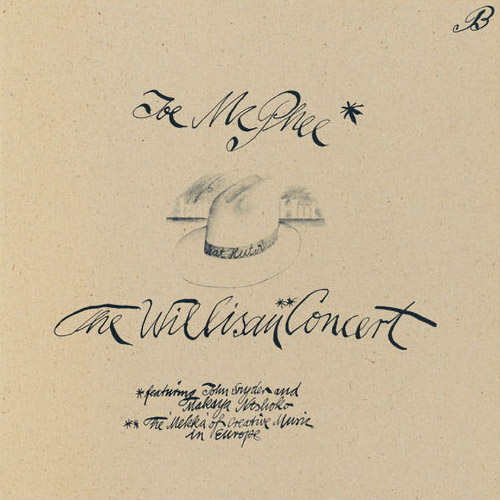

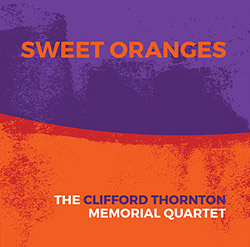


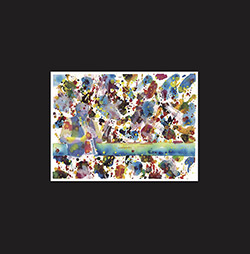

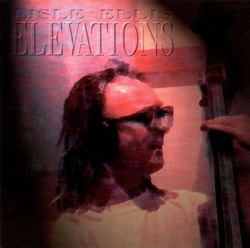

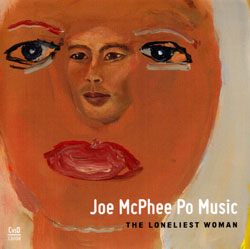
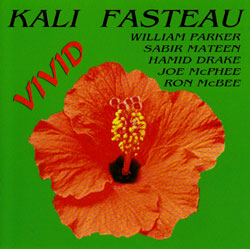
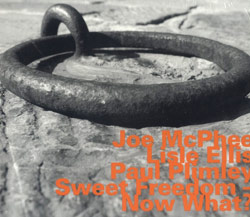
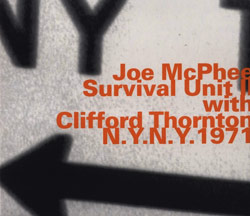

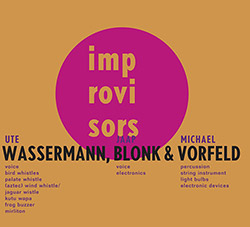
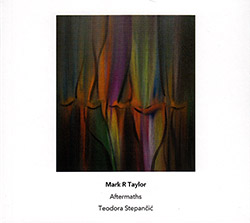
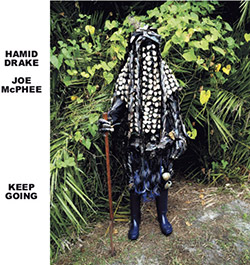

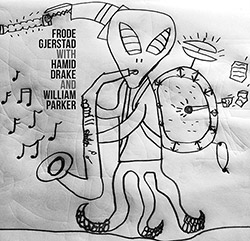
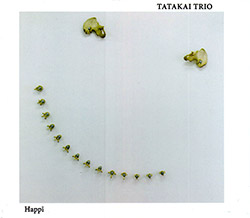



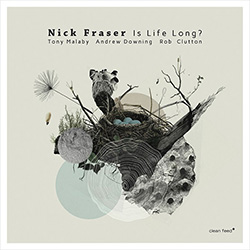





![Guy, Barry / Ken Vandermark: Occasional Poems [2 CDs]](https://www.teuthida.com/productImages/misc4/34849.jpg)
![Novoa / Carter / Mela Trio: Vol.1 [VINYL]](https://www.teuthida.com/productImages/misc4/35236.jpg)


![Elephant9 : Mythical River [VINYL]](https://www.teuthida.com/productImages/misc4/34624.jpg)
![Evans, Peter (Evans / Eldh / Black): Extra [VINYL]](https://www.teuthida.com/productImages/misc4/35279.jpg)

![McPhee, Joe: Straight Up, Without Wings [BOOK]](https://www.teuthida.com/productImages/misc4/35454.jpg)
![Jeck, Philip: rpm [2 CDs]](https://www.teuthida.com/productImages/misc4/35455.jpg)













![Barker / Parker / Irabagon: Bakunawa [VINYL]](https://www.teuthida.com/productImages/misc4/35533.jpg)
![Blaser, Samuel / Marc Ducret / Peter Bruun: Dark Was The Night, Cold Was The Ground [VINYL 10-inch]](https://www.teuthida.com/productImages/misc4/35492.jpg)








![Warren, Kenny (Warren / Hoffman / Ellman): Sweet World [VINYL]](https://www.teuthida.com/productImages/misc4/35451.jpg)




![Blake, Ran / Dave Knife Fabris: Live Amsterdam 2006, First Visit [CD + POSTCARDS]](https://www.teuthida.com/productImages/misc4/35275.jpg)













![DNS: Taking Big Bites Of The Khandas Three Cafes Deep [2 CDs]](https://www.teuthida.com/productImages/misc4/35334.jpg)




![Cleaver, Gerald: The Process [VINYL]](https://www.teuthida.com/productImages/misc4/34966.jpg)




![Alva Noto: HYbr:ID II [VINYL 2 LPs]](https://www.teuthida.com/productImages/misc4/35201.jpg)

![Baron, Derek / Luke Martin: Distinct and Concealed [CASSETTE + DOWNLOAD]](https://www.teuthida.com/productImages/misc4/35079.jpg)

![Lyle, Erica Dawn : Colonial Motels [CASSETTE + DOWNLOAD]](https://www.teuthida.com/productImages/misc4/35080.jpg)









![Sanna, Claudio: Compositori Sardi Contemporanei II [2 CDs]](https://www.teuthida.com/productImages/misc4/35317.jpg)







![Zurria, Manuel: Fame di Vento [3 CDs]](https://www.teuthida.com/productImages/misc4/35167.jpg)

![Granberg, Magnus / Nattens Inbrott / Skogen: Holde Traume, Kehret Wieder! [2 CDs]](https://www.teuthida.com/productImages/misc4/35038.jpg)
![Frey, Jurg: Outermost Melodie [2 CDs]](https://www.teuthida.com/productImages/misc4/35039.jpg)

![Pavone, Jessica: Reverse Bloom [VINYL]](https://www.teuthida.com/productImages/misc4/34895.jpg)




![Modney (Modney / Wooley / Gentile / Roberts / Pluta / Symthe / ...): Ascending Primes [2 CDs]](https://www.teuthida.com/productImages/misc4/34852.jpg)









![Elephant9 with Terje Rypdal: Catching Fire [VINYL 2 LPs]](https://www.teuthida.com/productImages/misc4/35355.jpg)
![Deerlady (Obomsawin, Mali / Magdalena Abrego): Greatest Hits [VINYL]](https://www.teuthida.com/productImages/misc4/34876.jpg)




![Haino, Keiji: Black Blues [2 CDs]](https://www.teuthida.com/productImages/misc4/35109.jpg)



![Surplus 1980: Illusion of Consistency [CD]](https://www.teuthida.com/productImages/misc4/35069.jpg)
![Staiano, Moe: Away Towards the Light [VINYL + DOWNLOAD]](https://www.teuthida.com/productImages/misc4/35037.jpg)



![Caveira (Gomes / Sousa / Abras / Ferrandini): Ficar Vivo [VINYL]](https://www.teuthida.com/productImages/misc4/34643.jpg)
![Gregg, J. J. / David Van Auken: Lunar Prairie [CD w/ DOWNLOAD]](https://www.teuthida.com/productImages/misc4/34611.jpg)

![Coultrain: Mundus [VINYL]](https://www.teuthida.com/productImages/misc4/32439.jpg)
![Mattin: Songbook #6 [VINYL]](https://www.teuthida.com/productImages/misc4/27317.jpg)
![Punkappella: Wake Up [7-inch VINYL]](https://www.teuthida.com/productImages/misc4/17519.jpg)
![Residents, The: WARNING: UNiNC.: Live And Experimental Recordings 1971-1972 [VINYL 2 LPs]](https://www.teuthida.com/productImages/misc4/31521.jpg)
![Coultrain: Phantasmagoria [VINYL]](https://www.teuthida.com/productImages/misc4/30142.jpg)
![Lennon, Sean Ono: Asterisms [VINYL]](https://www.teuthida.com/productImages/misc4/34517.jpg)

![Coley, Byron: Dating Tips for Touring Bands [VINYL]](https://www.teuthida.com/productImages/misc4/17906.jpg)

![Lost Kisses: My Life is Sad & Funny [DVD]](https://www.teuthida.com/productImages/misc4/lostKissesDVD.jpg)